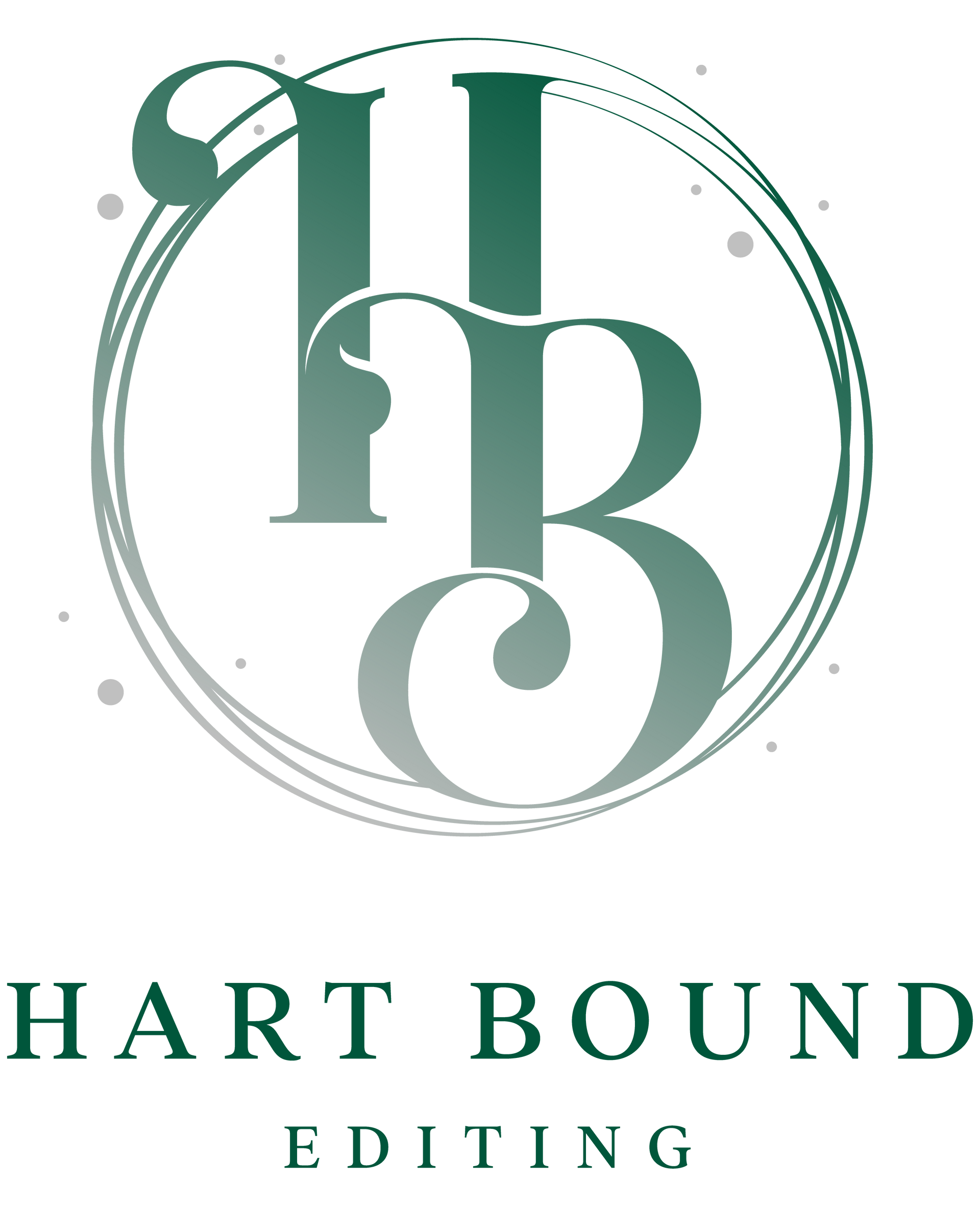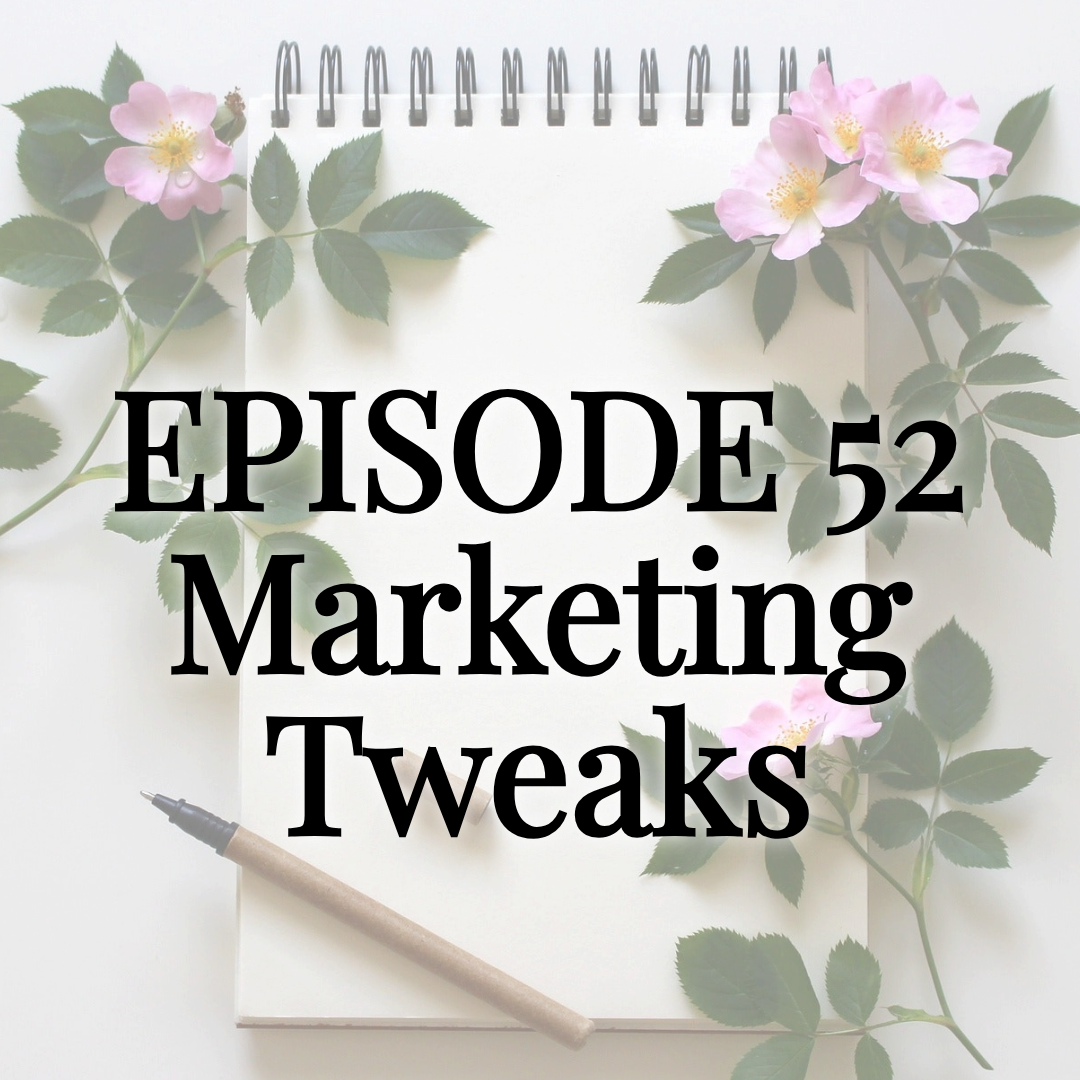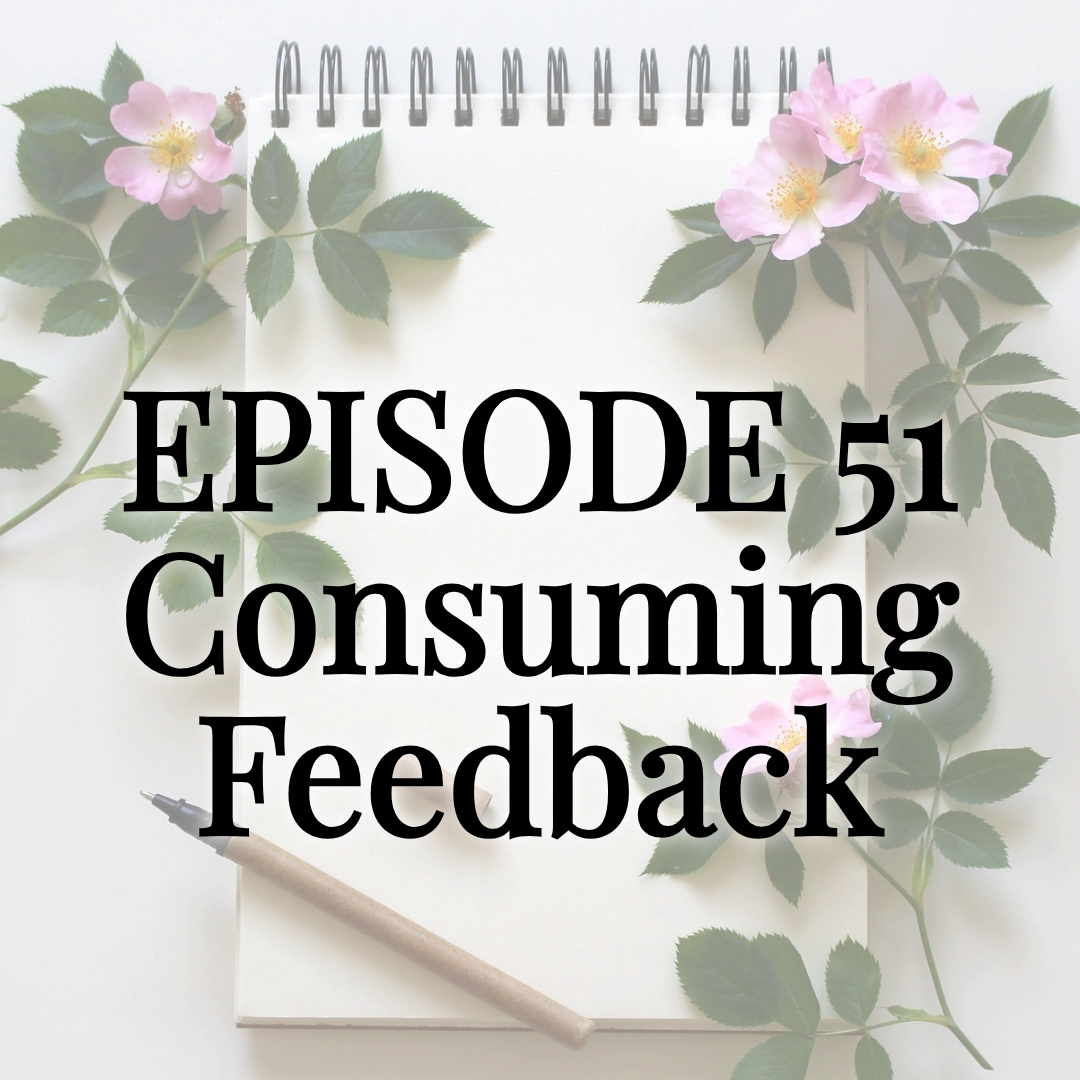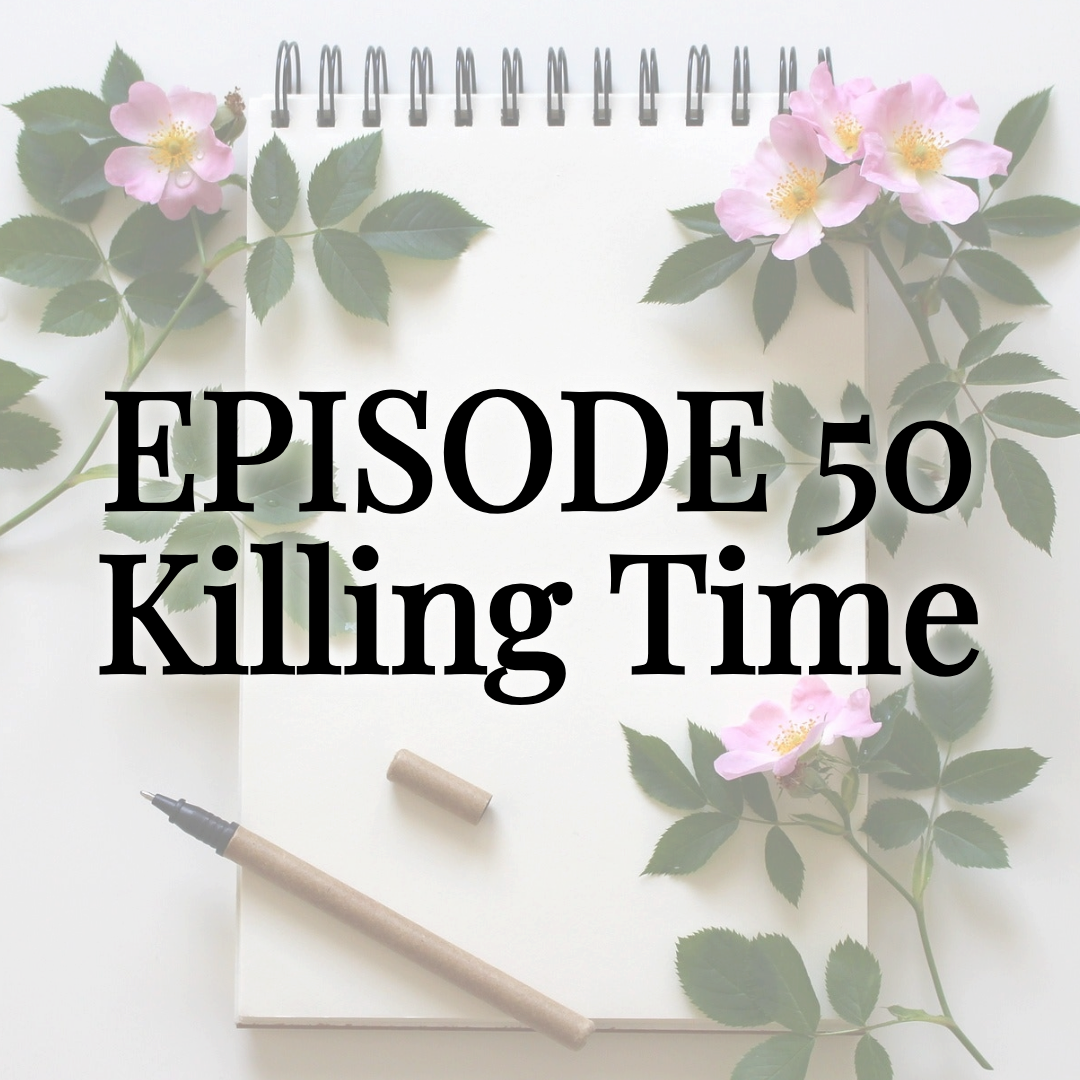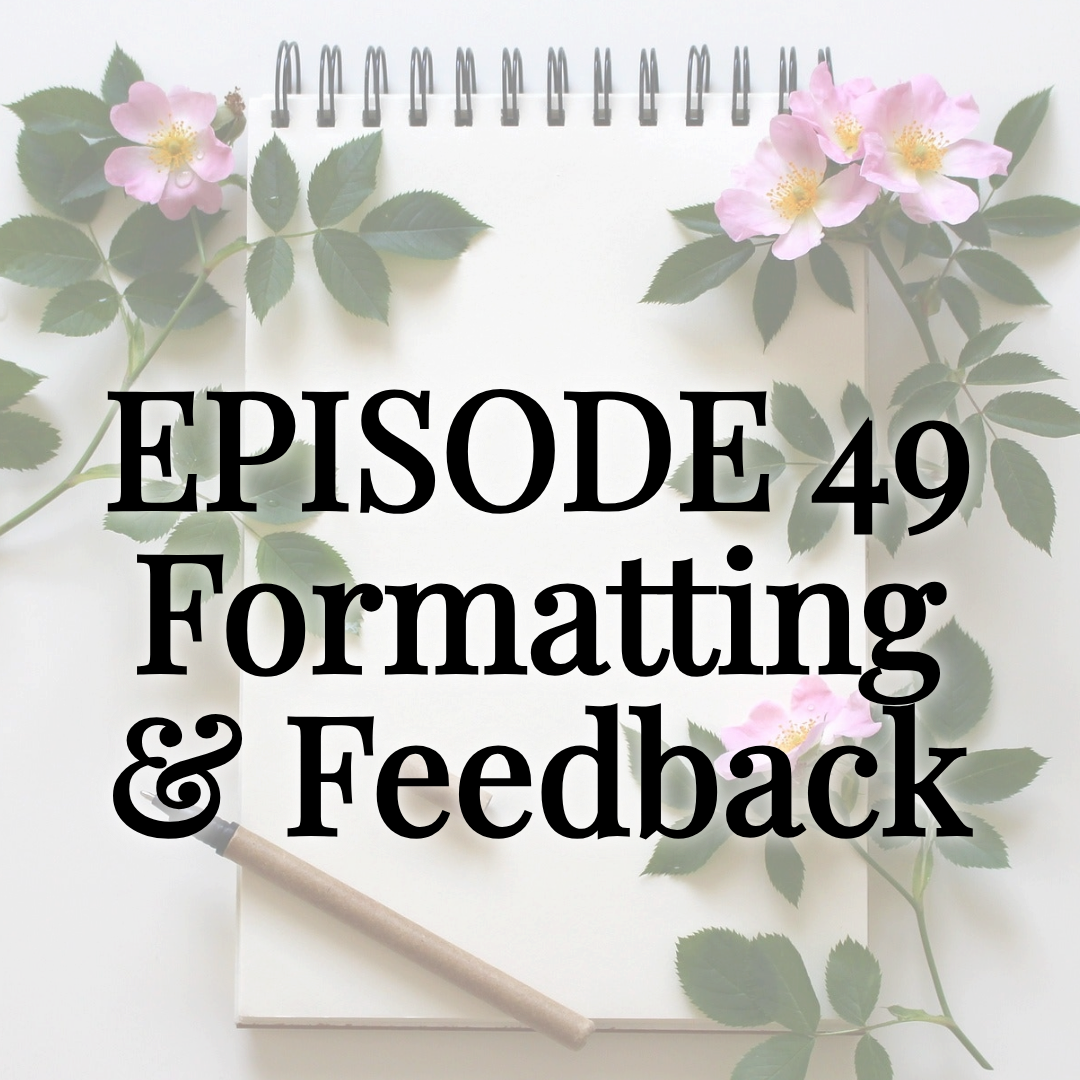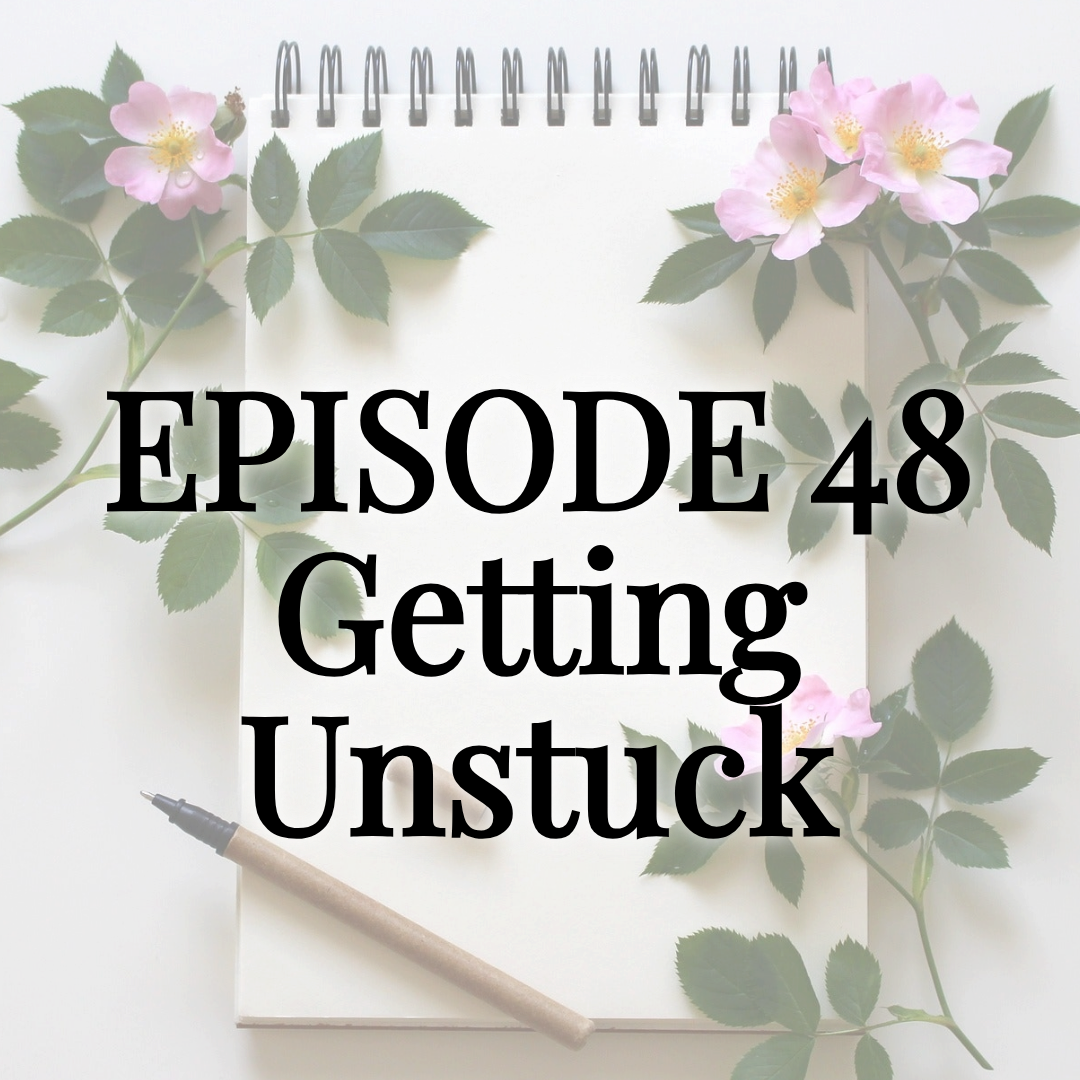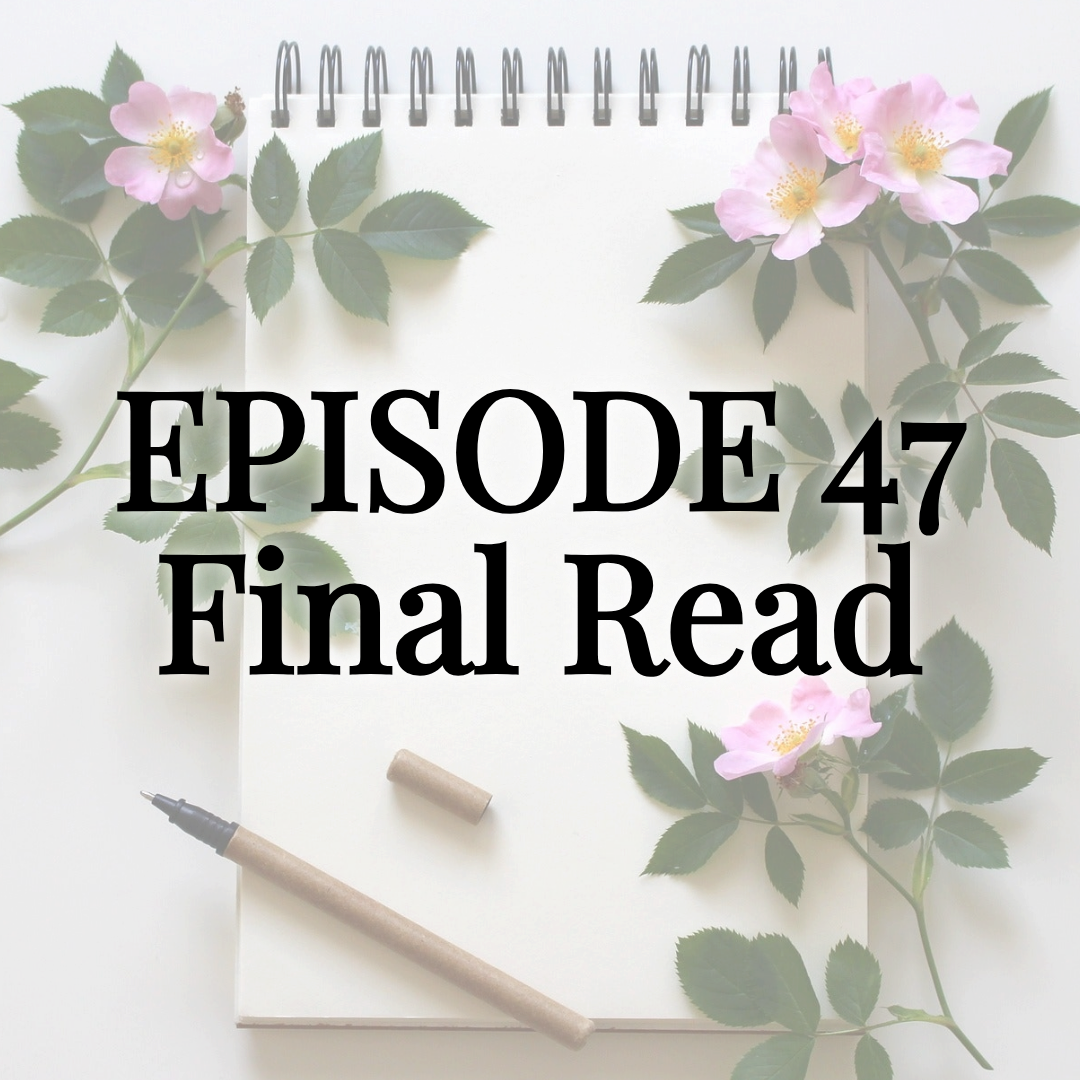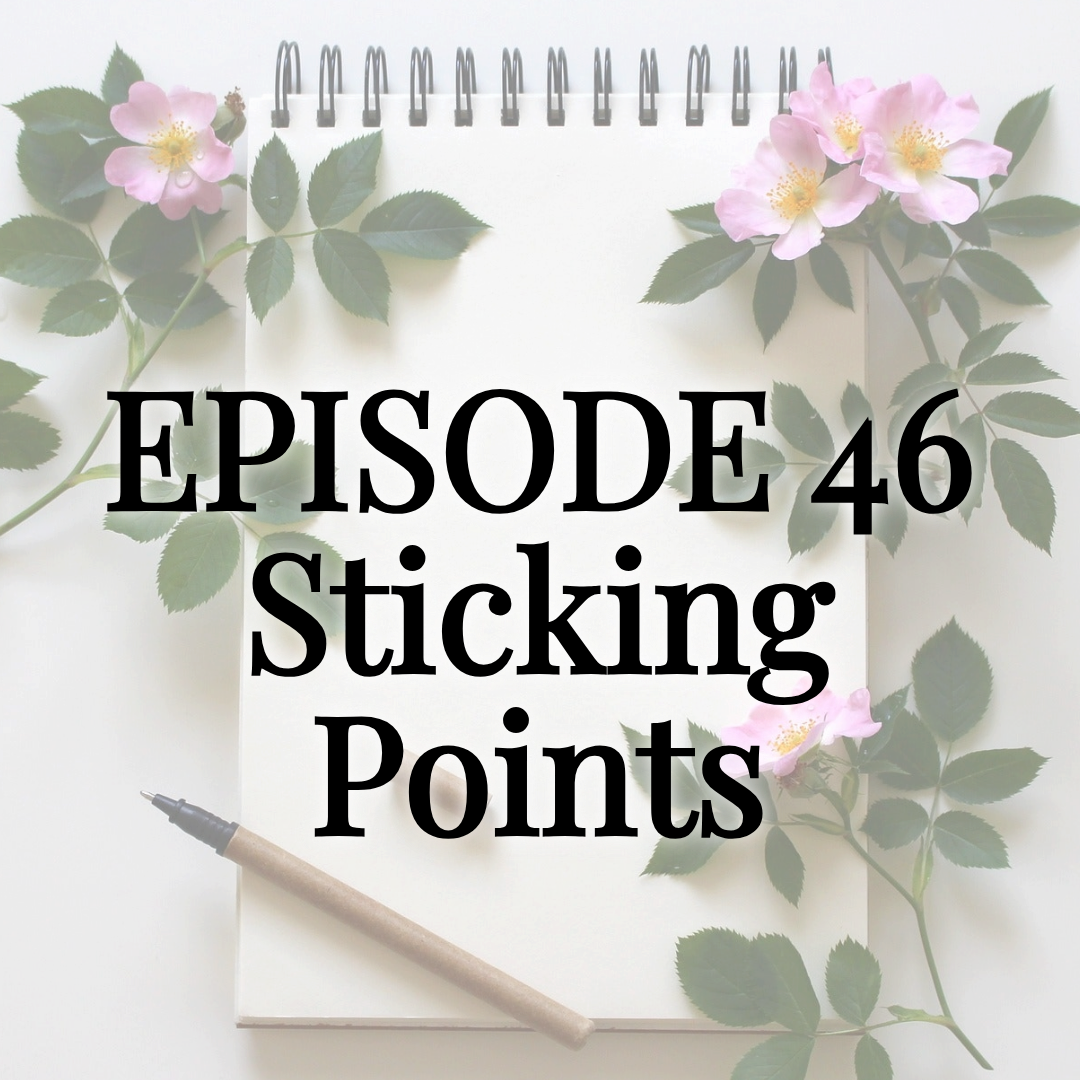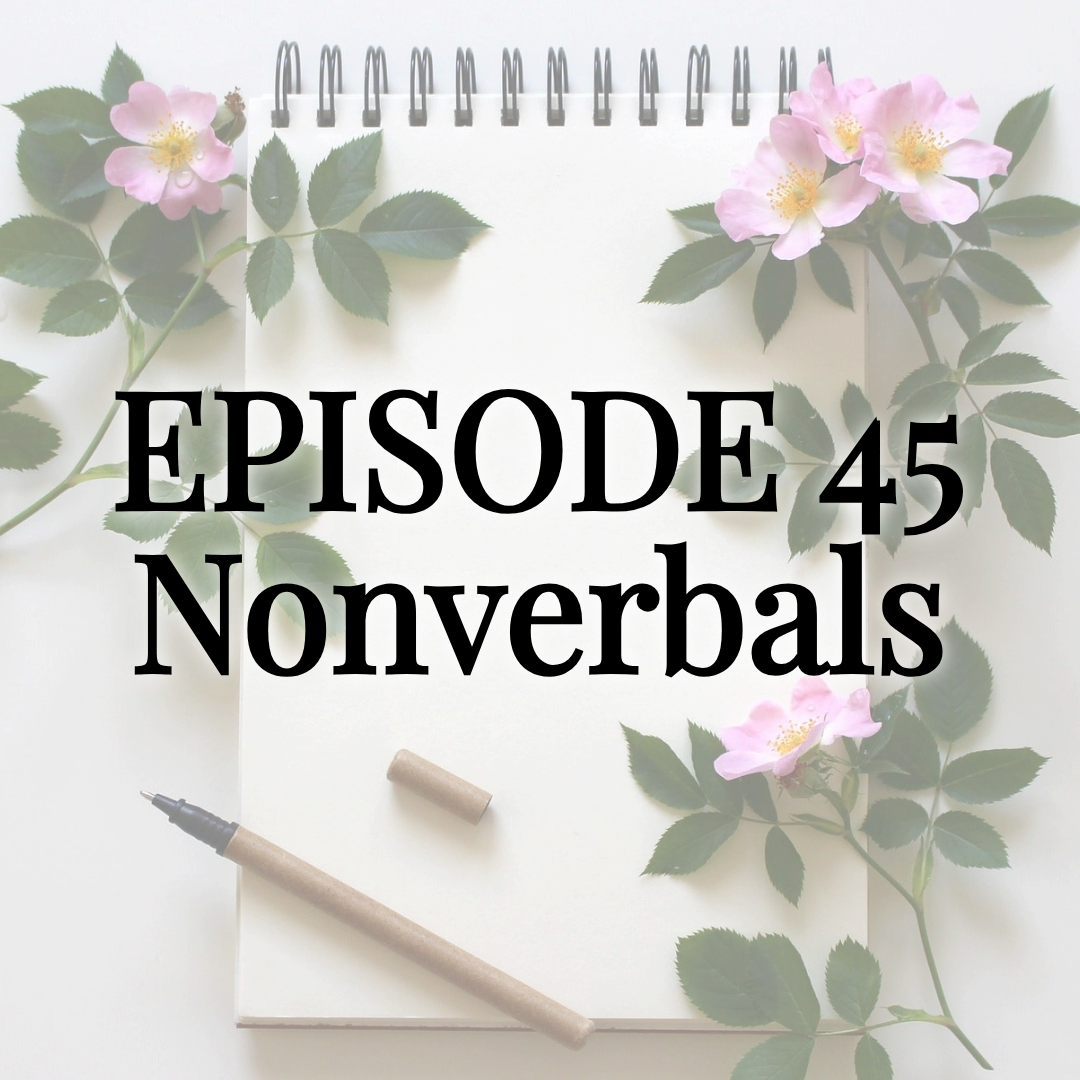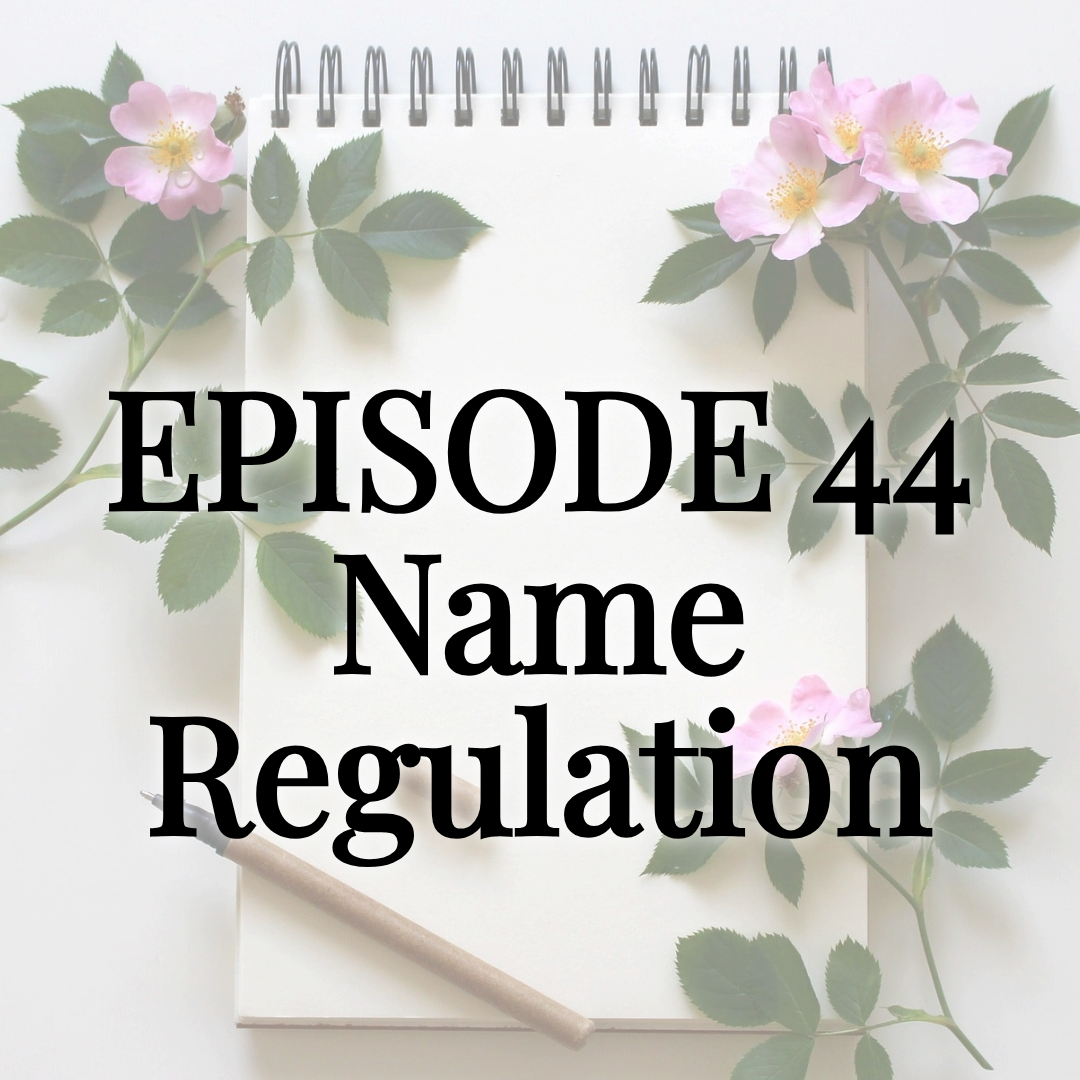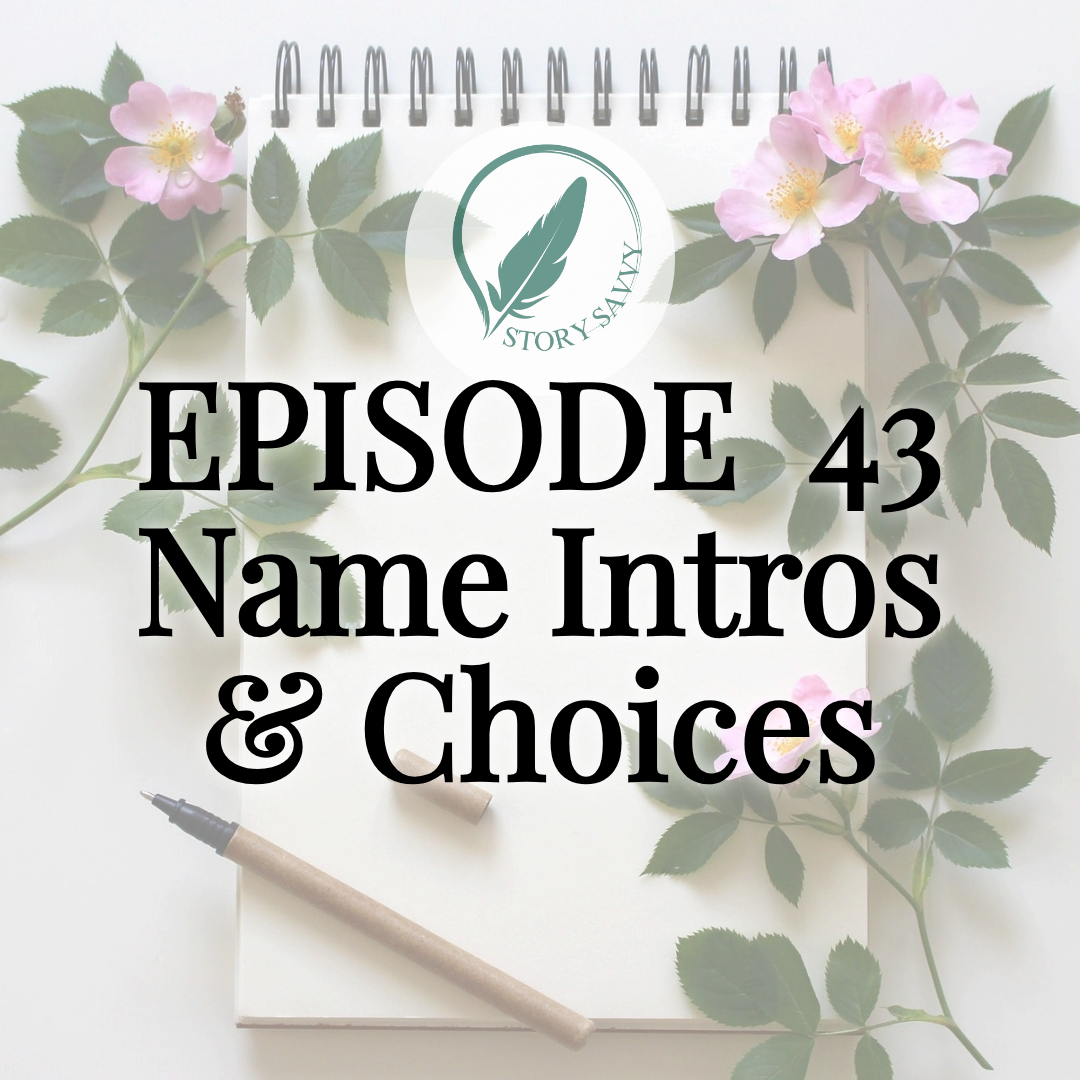Your Non-Negotiables: Story Savvy Self-Editing Episode 5
Your Non-Negotiables: Overview and transcript.

This is the episode I suggest you comeback to whenever you need a boost. If you really don't want to do one of the exercises in a different episode, if you have a rough time reading through feedback from an outside reader, anything like that. Know what you aren't willing to compromise on, with as much specificity as you can manage, and stick to it.
Happy editing!
Episode 5 Overview:
Your Non-Negotiables
"What will I NOT compromise on or change, no matter what? How will I stay in love with my story?"
Want to know what makes a good writer great? Knowing what NOT to take advice on when learning how to make a good story great. Tune in to get advice from a developmental editor on how defining your story’s non-negotiables can ease and streamline your self-editing process. You can craft an amazing published piece while protecting the aspects of your story that you love, and doing so will help you get there.
In the 5th episode of the Story Savvy Self-Editing Series, the Hart Bound Editing Podcast teams up with Authors' Alcove to help writers identify and protect the core elements of their story that matter most to them.
This 52-week story structure guide is designed to guide writers through the self-editing process, offering insights, tools, and tips for writing fiction books. Agnes Wolfe, host of Authors' Alcove, brings questions to Rebecca Hartwell, a developmental editor and founder of Hart Bound Editing about what makes a story work. This week, they discuss how knowing your non-negotiables can give you confidence in revisions and help you receive feedback without compromising what makes your story special or lessening your love for your WIP.
In this episode, they explore:
~Why identifying your non-negotiables helps you maintain your love for your story.
~How to balance critical feedback while staying true to your vision.
~Practical ways to refine your story without losing what makes it unique.
Rebecca shares her expert techniques for defining and refining non-negotiables, ensuring they support—not hinder—story development. Agnes provides her perspective as an aspiring author, sharing relatable insights on handling feedback and staying true to her creative vision.
Recommended Resources:
Self-Editing Next Steps: Developmental editing how it should be.
Agnes Wolfe's Insights: Tips for aspiring fantasy writers: [http://authorsalcove.com]
Do you have questions about defining your non-negotiables? Share them in the comments, and Rebecca and Agnes will address them in a future episode!
See you next week for episode 6: Splitting or Combining Your Stories
Episode 5 Transcript:
Your Non-Negotiables
Rebecca Hartwell: Hello and welcome to the Hart Bound Editing Podcast. This is episode five of the weekly Story Savvy series, where we tackle the 52 biggest self-editing topics and tips to help you make your good story great, as an aspiring author asks me, a developmental editor, all of the questions you've wanted to.
So far, we've covered audience, genre, and the vital cores of our stories. Today, we are going to dip down into some delicious selfishness in this episode to balance out against all of the considerations that we've been putting into what our readers will want. By the end of this episode, you will hopefully feel more comfortable in your willingness to change big things about your story and feel reassured that you can genuinely set healthy boundaries around getting feedback on your writing.
Agnes Wolfe: Hi, my name is Agnes Wolfe, an aspiring fantasy author who hopes to release her first middle-grade fantasy later this year and also the host and founder of Authors' Alcove. I'm here to talk about why knowing our non-negotiables is so important when rewor—I cannot say this word—when reworking out these stories with a developmental editor who has helped dozens of authors refine their books. Thank you, Rebecca.
Alright, so my very first question for you is: what are non-negotiables in the context of our stories? Is it the same as the heart of the story? And are these like rules we have to follow?
Rebecca: No, these are quite literally the opposite of any kind of rule. That is the entire point of this episode.
So, this is far more about what you are most excited about and/or love the most in your story, which you will change anything else to accommodate. The non-negotiable is what you decide you love so much that you are going to ignore all advice around it so that you stay in love with your story.
And how this differs from our core statements is; our core statements are about the story working. They are about delivering momentum, catharsis, and a coherent story experience. What the non-negotiable is about making sure that when you're done with your self-editing and professional editing, and you put your book out into the world, that you haven't compromised so hard on it that you don't even like it anymore.
Agnes: So, I think you just kind of answered this, but I'm going to ask anyway. Why is it important to know this?
Rebecca: I did touch on that, but I will say it this way as well: so that you stay in love with what you're writing and have a solid layer of mental armor in place exactly where you need it for when you start getting outside feedback.
When you get feedback, you might not know where it’s going to really hurt if someone says, "Oh, I didn't like this part." And if you're not braced for it, that can be devastating. That can end your desire to write, finish that book, or start the next one, or anything else. So, knowing what this is for yourself ahead of time and just telling yourself—because I am giving you permission, I’m a developmental editor, I’m giving you permission—to have this non-negotiable and say, “You know what? I am going to listen to all of the advice that I get around it, but I reserve the right to completely dismiss it for no reason other than I don't want to change this one thing if it doesn’t line up with what I want to do with it.”
So, it’s about deciding ahead of time, like I said, what you're willing to ignore advice around. I suggest you still listen, because sometimes it can improve your non-negotiable. Sometimes maybe that aspect of the non-negotiable is negotiable if you get the right advice for it. But if you name something that you're not willing to compromise on and you keep that safe, it can make an author so much more willing to make changes elsewhere—to actually take on advice and not feel hurt by advice in all of the other arenas.
Agnes: So, something you said sparked a memory from an interview I had with a different developmental editor. She had stated that oftentimes, when people get told negative feedback on things that they really love about their story, they think they have to change everything. And I think that, from what I heard you just say, you kind of confirmed that sometimes it’s just a small edit, and you can still keep that—it’s just something is not quite aligning to make it lovable.
Rebecca: Yeah, and specificity is your friend when thinking about your non-negotiables. So just thinking back to some of mine in my own work—one of my non-negotiables was initially, when I first sort of named it for myself, "Well, I want a magic system that has no cost because I haven’t seen that before."
But I got good feedback on that that really got into a lot more detail and was explaining, like, "Hey, the issue isn’t with your magic system necessarily—it’s that your characters are overpowered."
So, I was able to sit with that and adjust my non-negotiable to, "Okay, I still want to keep these other unique elements of my magic system, but I am going to take on that feedback of, ‘Hey, this system is overpowered’"—and address that in ways that kept the unique flavor of it intact. And that unique flavor became my non-negotiable. And I did get advice to change that, but I’m like, "Nope. I have already compromised on this topic as much as I'm willing to. This is my non-negotiable. I like this too much to change. It's for me." And I’ve gotten so many compliments on it from readers, so I made the right choice. And I am very confident that if you love something enough to make it your non-negotiable, that will be the case for you, too. Because if you love it, at least some of your readers will, too.
Agnes: And just so you know, I absolutely love your magic system. That is actually—I would say that is the single favorite thing in yours, is the magic system.
Rebecca: There you go.
Agnes: But we won’t talk all about your book right now.
What if it feels like the non-negotiable—but—non—I’m having trouble with, like, those two letters that are sounding like—what is that called?
Rebecca: Alliteration.
Agnes: Alliteration! I’m having alliteration problems today.
Alright, so what if it feels like the non-negotiable is too big and really is going to cause big problems trying to work around it?
Rebecca: That is a great question, and definitely the biggest potential downside to be aware of.
So, getting really specific is going help, like I was just talking about. Instead of saying, “My non-negotiable is: I am not going change anything about my protagonist,” because that’s going cause problems, that’s going cause big problems. Instead, get really specific and go down that sort of brainstorming process that we’ve talked about in other episodes of: “Alright, here’s idea one. Now, if I change that a little bit, what’s idea two?”—and go down that chain a little bit until you really land on exactly what about your character you are so in love with that you don’t want to change.
So, for example, that could be, instead of, “I don’t want to change my character,” it could be, “I’m not going compromise on my character being a bit of a doormat. I don’t want to write a strong, outgoing protagonist because I’m so sick of that. And I think that what makes my protagonist really unique is that she is not that kind of person. She is easily swayed. She is a people pleaser.” And from there, you can get even more specific and just be like, “Okay, when my protagonist hits conflict, her immediate reaction is, I must play peacekeeper.” That’s much more specific. You can work with that. You can write any kind of story you want, keeping that intact. You can make any kind of changes to the structure of the story, to her character arc, and not lose that little nugget. So, specificity is your friend.
You can also try rephrasing your non-negotiable and/or any of your story statements—your genre things—just like I talked about with getting your core statements to match your genre things. Just tweak. See if, “alright, well, if I change the word—you know—doormat to peacekeeper, can that line up now? Okay, cool. Alright, if I change the wording from, “This is a story about learning to love yourself,” if I change that to, “This is a story about learning to believe in yourself,” does that fit better?”
So yeah, basically, specificity and tweaking, rewording, seeing how you might be able to get them to line up better than you think you can at first glance.
Agnes: So, what if the parts that I have feel like it strays from what is special to me? Do I just need to scrap, like, the whole thing?
Rebecca: First of all, no. I am not a believer in scrapping everything and starting over. I think that getting the words down is the hard part and then editing them is—I know it’s cliché advice, but you can’t edit a blank page. So, I recommend reworking what you have. And if you have to rewrite something, do it at the smallest scale possible. So, rewrite one chapter. Or one scene. Or a page. Or whatever is needed.
So, having said that, if your story feels like what you actually managed to write isn’t in alignment with your non-negotiable—let’s say when you’re thinking about this, you’re thinking back to what first inspired you, and you’re like, “I really wanted to write a story about dragons who were actually not the bad guys at all. But what I ended up writing was a story that still makes them look like the bad guys.”
First of all, I want to acknowledge that that can be really hard to acknowledge about your own work, and it can be discouraging. But a lot of edits and a lot of changes don’t take as much as newer authors in particular tend to think. So, doing this exercise can also help you name why you’re not liking the book that you wrote as much as you thought you would.
So, I suggest going through the same exercises and writing out what your non-negotiable is and/or what you wanted it to be at the beginning. Because the only point of this exercise is finding what spark in your heart is like, “Yes! This story.” So, if you write that down and you’re like, “This doesn’t match my book,” that’s valuable. That’s great. Having that written down is going help you so much.
Because, like we were talking about last week with having your theme and your message as that sort of North Star of, “Hey, this is the direction that I want to go in, that all of the paths lead up to,” if you simply put your non-negotiable statement in there with those three parts of the story statements, then as you’re editing, you can just—when you see an opportunity—tweak how someone words a sentence. Or tweak how you describe their emotional reaction to something. Or tweak how the magic system works.
It’s just a matter (at this stage) of knowing what that is for yourself. And if it’s not in alignment, then using that as part of your North Star. It’s not a big thing we’re going to tackle. It’s just something to be aware of, so that as you’re working through the much smaller steps that we’re going to go through later in the series, it’s there in your head.
Agnes: So, what are some questions I can ask myself so I know whether I should keep a scene that feels like a non-negotiable but may have strayed from the heart of the story? How should I handle that?
Rebecca: Similarly. Again, specificity is going to help.
So, I’ve definitely been in the position of going, “But I love this scene! I had so much fun writing this scene! I had so much fun imagining, like, this was one of the first scene ideas I had for this whole book! What do you mean it’s not serving the story?”
So, taking a step back and getting really specific again is what I recommend here. Because it’s probably not that you love every single word in that scene in exactly the order that they are in. It’s probably more a case of: “Oh my gosh, I really loved this emotional moment between these two characters.” Or, “Wow, I really liked the twist that I had there that’s going to make the reader go, ‘Whoa, I didn’t see that coming!’” Or, “I really love the wording of these, you know, three sentences that are just gorgeous prose.”
So, again, getting specific is so helpful in these non-negotiables. Because if you have a scene that’s not serving the story, that’s not aligned with your core statements or not aligned with your genre or anything like that, the more specific you can get on the non-negotiables, the better.
Because you can just move them! You can just take that really delicious emotional moment between two characters and find a spot, let’s say three chapters earlier, where it can just slot right in and have the same impact and still be exactly how you wrote it.
And you can take that twist, and you can, you know, what’s the word I’m looking for? Like, tease it out another two acts and use that twist where it’s going to be even more impactful. And you can take those lines of perfect prose and just put them somewhere else. And in doing this, you’ve taken, let’s say, 300 words and you can scrap the other 3,000 words out of that chapter. And your story is going to be stronger for it.
So again, the question is: “Alright, am I actually attached to the scene, or am I attached to something that that’s like a page of this scene? Alright, am I actually attached to this whole page, or am I attached to this one thing that happens? Okay, am I attached to this one thing that happens, or am I attached to this one sentence that I’m so proud of how I described what happened?” So, asking yourself those winnowing questions to get down from: “This is so big. I don’t know how to handle this,” to “Okay, this is that little, you know, diamond sitting there that I don’t want to lose. And I can just *click* pick that up and put it somewhere else.”
Is that helpful?
Agnes: That’s very helpful. I really liked what you said. And I think that kind of goes back to the thing that I was saying earlier about how the developmental editor I spoke with—and you are basically saying the same thing: That the editing really is not as big as you think it is when you first hear, “You need to scrap this scene.” You don’t usually have to literally scrap everything about it. I love that so much.
So, how can I know if I have scenes or aspects that take away from what is important to me?
Rebecca: First of all, there is not an easy answer to this. And that is why I have a job as a developmental editor. There are lots of things that we can do for ourselves in self-editing, but sometimes you really just have to have that outside perspective.
So, apart from that, since this is a self-editing series, I will say that, again, just having a statement written down is going to be helpful. When you’re doing your rereads, when you’re going back to your inspiration, you’re thinking about the changes that you want to make, it’s a lot easier to notice gaps and figure out how to fill them, and to notice, “Oh, this is really strong right here. How can I maintain that?” if you’ve articulated it than if it’s just simmering in your subconscious.
But I want to recognize and acknowledge that there is a lot of resistance that can come up around this. Because it’s so nebulous. And sometimes, it can be hard to really just highlight a sentence and go, “Okay, it comes up here, and it comes up here, and it comes up here.” This is more intangible than that. Which is part of why I want to bring it up this early in the series, because people will hopefully have had a chance to sort of stew in it since last week. But I don’t want them to stew in that too long to the point where they get discouraged. So yeah, I just—I don’t know. I love this topic, but it’s kind of hard to talk about in really tangible terms which is very much my goal here.
So, how to tell if a scene is getting away from that, if it’s not in alignment, is basically down to your judgment. You are the person who knows how that non-negotiable feels for you when you think about it. And just holding on to that as you’re reading through and editing is the best advice I can give there.
Agnes: How can I refine the story to better showcase the elements I am most passionate about?
Rebecca: Another great question. So, I’ll start off by saying that this really is not like the heart of a story. That is, again, thinking about story craft, and the value of it, and whether it’s working. This is so personal that there isn’t really any right or wrong answer.
So, when you’re thinking about refining to bring, you know, the non-negotiable to the surface, that’s not really applicable here. Because the non-negotiable isn’t necessarily something that you want to show the reader. It can be, but that’s not the goal here. So, your non-negotiable should—the focus should be more on how you can refine the story to make you happier with it. And there isn’t story advice for what makes you, as an individual, happy. And that’s the point here.
So, there’s no wrong answer. There’s no right answer. If you want to showcase an element, there are ways to do that: you bring it up more, you show different aspects of it, you have your characters talk about it, and wonder about it, and feel things about it. So, there’s no advice on this that I can really give that doesn’t apply to any other element that you want to bring to the surface, whether that’s theme or setting or, you know, goal/quest, whatever it happens to be.
Agnes: I feel like the non-negotiable really is just letting us fall in love with our story and letting us—and letting that love kind of portray because we love it so much.
So, it makes sense from a self-editing perspective, but how can I handle this around getting outside feedback, especially from a professional I am paying to tell me what I need to change, like you?
Rebecca: Great question. And this is the primary reason that I wanted to cover this in this series. Because I… So, going off in a weird direction for a small moment—the first developmental editor that I ever worked with was not a good experience. And I have spent a lot of time kind of breaking down why, so that I can avoid doing the same things to my clients. And part of that exploration, one of the answers that I came to, was that she didn’t seem to care about the soul of the story at all. And when I’m editing, I now put a lot of emphasis on that.
I really try to never change the soul of a story, only help the author be better at whatever it seems like they were already trying to do.
So, answering for myself in how people can address this topic when they’re working with me specifically: just tell me. Like, “Hey, this is my non-negotiable.” And that doesn’t mean I’m going to ignore the topic. That doesn’t mean I’m going to be less critical of it. But when I’m leaving my notes for you, or the inline comments or anything like that, I will have a conversation with you about the fact that that is your non-negotiable. And I will do my best to help a client understand, again, more specificity around it.
So, if they say, “Hey, my non-negotiable is that this character has to be in the book,” I’m like, “cool! Well then, let’s see how we can make it make more sense that they are in the book. Let’s see if we can give them more of a role to play. Let’s see if we can make them more vital to the plot.” That kind of thing. So, speaking for myself; just tell me.
Trying to answer for unknown editors out there, whoever you might end up working with, because there are all kinds of editors out there. I know all kinds of editors, and they’re all going to have different personalities. They’re all going to have different takes on this. I’d say that if it’s an editor that you know pretty well, and you know that they might be open to this, have a conversation with them. If you’re working with critique partners, absolutely have a conversation with them. There’s no reason not to. But, at the end of the day, your non-negotiable is your responsibility. And that’s why naming it, like I was talking about—having the armor of knowing that this is your non-negotiable in place—is so important.
Because then, if you get feedback from someone you have or haven’t talked to about it, and they say that they don’t like your non-negotiable or they think it needs to change drastically, or in any other way say something or suggest something that is going to hurt that part of you, that part of your love for the story, you are prepared. And you have this statement. And you’re like, “Alright. I don’t like reading this sentence. It makes me feel really bad. Oh. Right. That’s my non-negotiable. I am going to read this. I’m going to sit with it for a second and see if there is any value in it. And if there isn’t, or if that value would compromise what I love about it, I’m going to scroll on.” That’s really the advice for working with editors. It’s knowing your non-negotiable. It’s knowing what feedback you are going to completely ignore if you don’t immediately see the value in it.
Agnes: I think that’s also very important.
That’s something—interviewing a lot of authors—I have found is that they often will get stuck on something an editor said, and they will be very angry about it. And knowing, you know, if that is so important to you, then maybe you need to keep it.
Rebecca: Yeah. So, having gone over all of this, what are you thinking are your own non-negotiables? Or anything like that?
Agnes: Mmm. Mine—one of mine would be the dragon's life cycle. So, in my story, my dragons actually have multiple lives. And when they choose a dragon mate, that is when their egg hatches, and they live that life with that person.
When that person dies, they return—it’s kind of like a phoenix—they return back to their egg. And to me, that is very important because of the backstory I created, and it’s very important because of the future story that I will never have. I will never share. You know, for me, that is my non-negotiable: the dragon’s life cycle. And that it is very similar to a phoenix.
Rebecca: I love that. And do you have any for, like, your characters or anything like that?
Agnes: Well, with Amelia, it’s her bond with her best friend that is very important. And that she is more soft-spoken. She is not going to be somebody who is a hard fighter or anything like that. She is somebody who has to force herself. Who—it’s not her nature, and it will never be her nature. And because I think the message I want to—and the heart of my story, and that’s why, is because I want people to realize that just because that’s your nature does not mean that that’s how you have to live. You can choose to be a fighter.
Rebecca: I love it. Those sound like really strong statements, and I’m so excited to read this book.
Agnes: Good! Well, anyway, I know we need to wrap up, but I did want to ask one last question. What should we do with this answer going forward in our self-editing? As far as what our non-negotiable is. What do we do with that?
Rebecca: Sure. So, the general idea as we go through the rest of this series is to interpret around your non-negotiable. So, my brain is always reaching for metaphors, and I avoid overusing them, but if your story is a path—and I know that’s cliché, but it works—if your story is a path, then your non-negotiable is a boulder. And whatever editing you do, however you rearrange the trees and the dirt and the grass and the signposts and everything else, that boulder does not shift.
So if we’re, you know, jumping way ahead in this series to, “Alright, well, I’m looking at how all of my chapters open and making sure that it’s clear,” Like, if one of your non-negotiables is, “My characters are grumpy,” and you get feedback of, “All of your chapters open with statements about how your character is so grumpy,” Then, you know, having your non-negotiable is giving yourself permission to go, “Yeah, I like it that way.” So that’s really all that we have to consider going forward.
You can always consider feedback about your non-negotiables that might make them better, that might add to them, that might make that boulder better fit into the path, that might, you know, carve it into a cool shape. And that’s why I suggest you at least consider feedback on your non-negotiables. But at the end of the day, if it doesn’t feel good, knowing your non-negotiable is reason to ignore all advice. And that includes the advice that we’re going to be giving on this series.
Agnes: Well, thank you so much for your insight. This has helped me so much. I appreciate it.
Rebecca: Very happy to.
It’s so important that we consider our own interests, desires, and investments in our stories—along with all of the outside opinions that we will get and that we have to consider when we’re editing and thinking about our readers.
So, next week, we’ll get into another massive decision to make about your stories (I promise there are a limited number of these) and talk about whether we should split or combine our stories if they are too long or too short for what we want to do with them.
So, for now, I would really like to thank you, all of our listeners. If you would please help us out by liking and subscribing to the Hart Bound Editing Podcast and the Authors' Alcove Podcast, we would be very grateful. And you can find lots more content for fantasy authors and readers beyond this joint series over there.
Agnes: And I can’t wait to chat with you again next week. Thank you, I can’t wait to see you then.
Rebecca: Bye.
Rebecca: Thank you so much for listening to the Hart Bound Editing Podcast.
I look forward to bringing you more content to help you make your good story great—so it can change lives and change your world. Follow along to hear more or visit my website—linked in the description—to learn how I can help you and your story to flourish.
See you next time!
